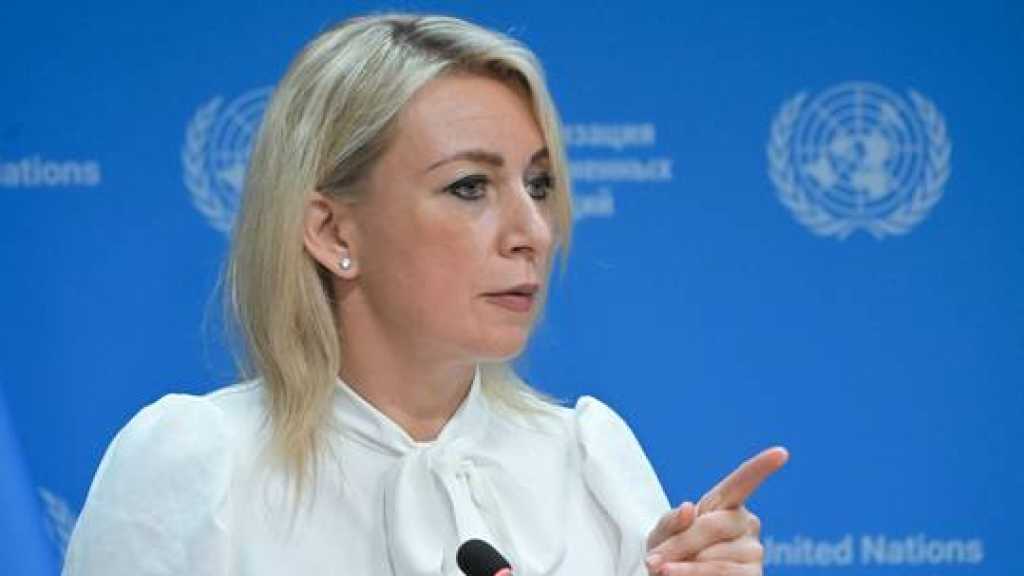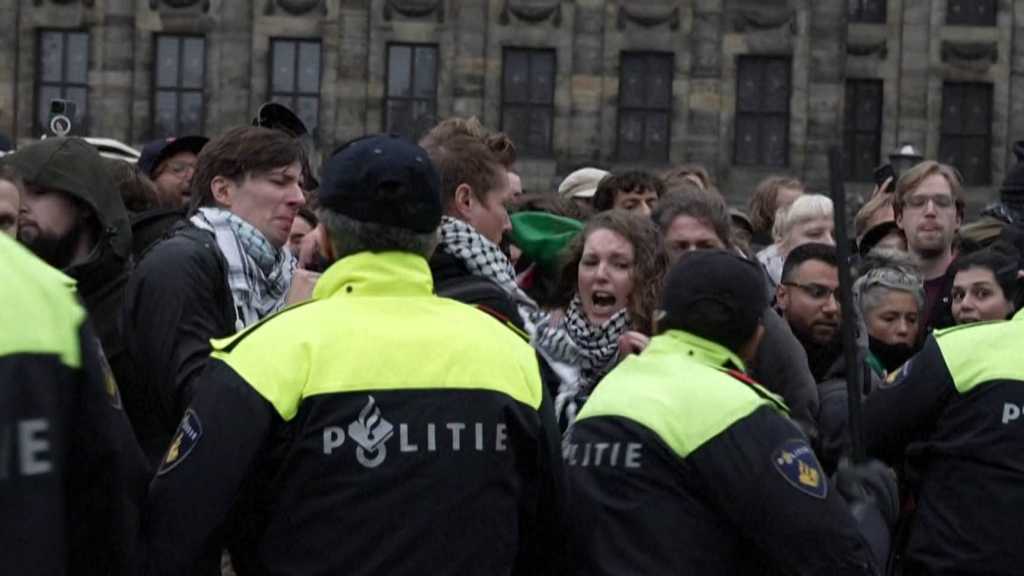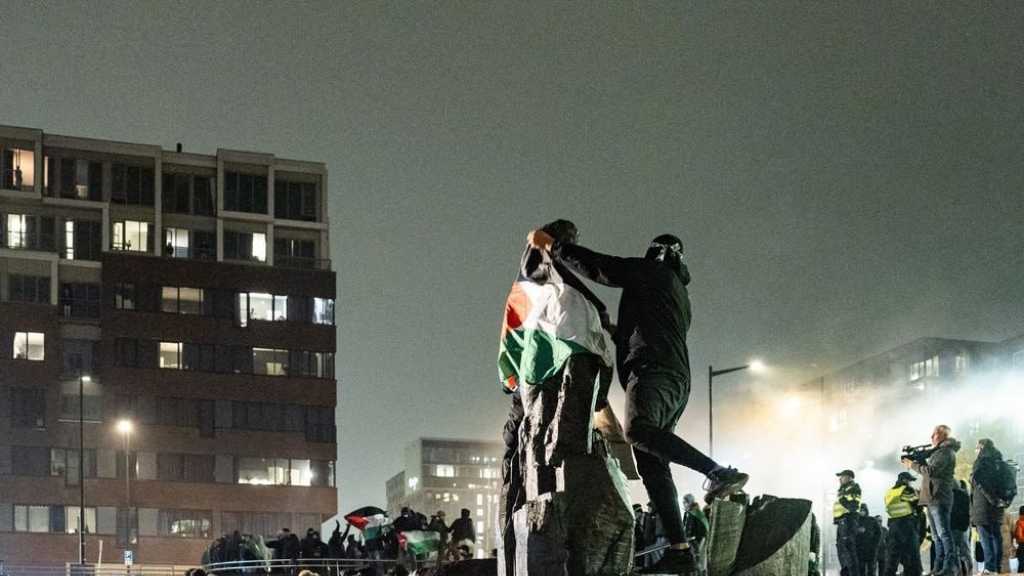French Parl’t Election: Big Test for Macron as Voting Ends in French Polls

By Staff, Agencies
Voting has ended in most of France in an election to decide whether Emmanuel Macron can continue governing with a majority in the National Assembly.
Turnout was expected to be historically low in the first of two rounds.
The president's main challenge comes from a left-wing alliance under Jean-Luc Mlenchon, who has set the unlikely target of becoming prime minister.
Macron won a second term in April, but without an Assembly majority he will struggle to push through reforms.
Polling stations closed in most of France at 18:00 [16:00 GMT], but voting was continuing in the biggest cities of Paris, Marseille, Lyon and Toulouse for two more hours.
Turnout for the first round was the lowest for more than 20 years, with 39.42% of France's 48.7 million voters casting ballots by 17:00. Pollster Ipsos-Sopra Steria said it was set to be the lowest in modern French history.
Since coming a close third in the presidential election, Mlenchon has built an alliance, called Nupes, made up of left-wing and green parties.
Macron’s coalition is looking far weaker than in 2017, when it dominated the first round and went on to win a commanding majority of seats. This time, its vote share [25.75%] was very nearly matched by NUPES’ [25.66%], with just 21,000 ballots separating the two, according to official results published by the Interior Ministry.
Next up is Le Pen’s National Rally with 18.68 percent. Far-right candidates largely failed to capitalize on Le Pen’s success in the presidential election, in which she claimed more than 40 percent in the second round.
Nevertheless, Sunday’s vote does promise a significant boost for Le Pen’s party in parliament. The National Rally currently has just eight seats in the National Assembly, short of the 15 needed to form a parliamentary group – a prerequisite to having any real weight in the chamber. That is likely to change next Sunday, with the National Rally projected to win anywhere from 20 to 45 seats, according to FRANCE 24 polling partner Ipsos/Sopra Steria.
By contrast, Les Républicains are set to lose up to half of their seats. The party won 10.42 percent on Sunday – better than the 4.78 percent claimed by their presidential candidate Valérie Pécresse in April, but nevertheless a sharp drop for the party that for decades was the standard bearer of the French right.
No other party won more than 5%.
Key to the second round will be turnout. Sunday’s vote saw a new record low for electoral participation, with 52.49% of registered voters staying home. Left-wing leaders are seeking to rally much greater turnout next week, with the expectation that France’s disaffected are more likely to vote for them than for the governing coalition.
Only a handful of candidates won their seats outright in the first round: four for NUPES, and one for Macron’s coalition.
Marine Le Pen came close, winning an absolute majority [53.94%] in her run for reelection in the northern Pas-de-Calais region. She will still head to a runoff next week, however, because of low turnout: Candidates need the support of at least a quarter of a registered voters to skip the second round, a threshold Le Pen failed to clear. She will face NUPES candidate Marine Tondelier, who took 23.43 percent in the first round.
Perhaps the most notable loser on Sunday was far-right pundit Eric Zemmour, who attracted vast media attention in the presidential race but has so far flopped as a candidate. Zemmour failed to advance to the second round on Sunday in his bid for a seat representing Saint Tropez. Nationally, his Reconquest party won just 4.24% of the vote, and did not send a single candidate to the run-offs.
Jean-Michel Blanquer, who until recently served as Macron’s education minister, also faced a stinging defeat, coming in third behind the National Rally’s Thomas Ménagé and NUPES’ Bruno Nottin in his race in central France.
Two current ministers are also in precarious positions: environment minister Amélie de Montchalin and European affairs minister Clément Beaune, who both came in behind NUPES candidates in their races. If they don’t win their runoffs next Sunday, they will lose their seats in government.
Other Macroniste ministers fared better. Prime minister Élisabeth Borne, who had never before run for office, came out roughly 10 points ahead of the NUPES candidate in her bid for a seat in the northern Calvados region. Interior minister Gérald Darmanin also made it comfortably into the second round, as did Damien Abad, minister for Solidarity and the Disabled, who is facing rape accusations. Abad will face NUPES candidate Florence Pisani in the second round.
No sitting minister failed outright to make it into the second round.
On the left, two prominent members of Mélenchon’s France Unbowed party [heading up the NUPES coalition] won their races handily: Adrien Quatennens and François Ruffin.
On the nationalist right, former presidential candidate Nicolas Dupont-Aignan came in first in his race, while Florian Philippot, once a close Le Pen ally, fell far short of the runoff with 4.62 percent.




